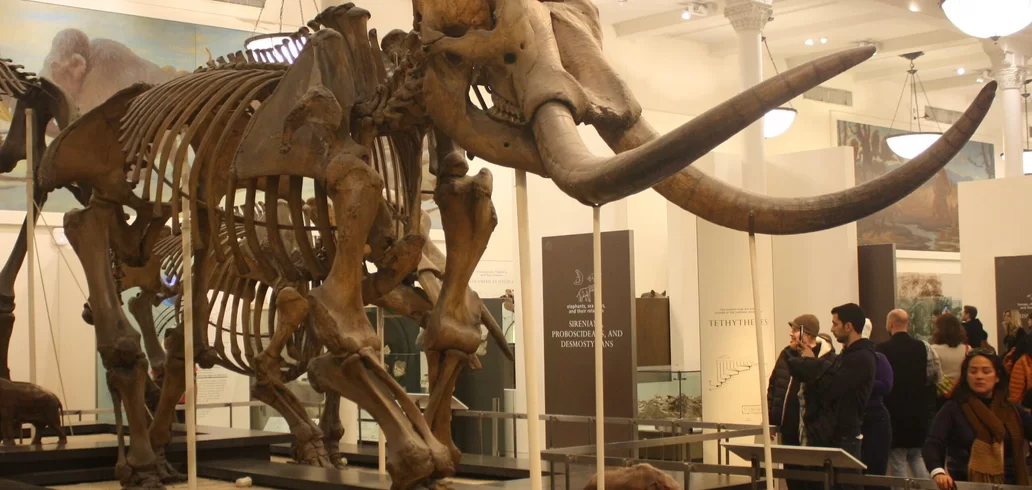Health
Aging may have played a critical role in human evolution
Advertisement
When humans live longer after reproducing, they can invest more resources and time in raising and caring for their children. This can lead to higher child survival rates and the development of more elaborate social structures, where older people play important roles in passing on knowledge, traditions, and skills to younger generations.
Furthermore, aging may have contributed to the development of culture and technology, as older individuals have more time to dedicate to activities that are not directly linked to immediate survival, such as experimentation, innovation and art.
Therefore, aging is not only a biological process, but has also played a fundamental role in the social and cultural evolution of humanity.
Genetic influence of aging
The genetic influence on the aging process is significant. Several genes are involved in controlling aging and determining the longevity of an organism. Here are some important aspects:
1. **Longevity Genetics:** Studies in animal models and human populations have identified genes that are associated with longevity. For example, genetic variants in genes such as FOXO3, APOE, SIRT1, and others have been consistently associated with increased longevity in humans.
2. **Telomeres and aging:** Telomeres, protective structures located at the ends of chromosomes, shorten as cells divide over time. This shortening is associated with cellular aging and the development of age-related diseases. The activity of the enzyme telomerase, responsible for maintaining telomeres, is regulated by genes and influences the rate at which telomeres shorten.
3. **Oxidative stress response:** Oxidative stress, caused by an imbalance between free radical production and the body's antioxidant capacity, plays an important role in aging. Genes involved in the oxidative stress response, such as those encoding antioxidant enzymes, may modulate the rate of aging.
4. **Inflammation and Immunity:** Chronic inflammation and compromised immune function are associated with aging and the development of age-related diseases. Genes that regulate inflammatory response and immune function may influence health in old age.
5. **Metabolism and hormone regulation:** Metabolism and hormone regulation play a key role in aging. Genes involved in energy metabolism, growth regulation, and hormone function may influence longevity and health during aging.
Although genetics play an important role in aging, it is essential to recognize that environmental factors, lifestyle, and gene-environment interactions also have a significant impact on determining longevity and health in old age.
General benefits
The overall benefits of aging can be diverse and vary from person to person, but here are some positive aspects that many people experience:
1. **Wisdom and Experience:** As we grow older, we accumulate a wealth of experience that allows us to make wiser, more informed decisions. This wisdom can be valuable to ourselves and others around us.
2. **Authenticity:** As we get older, we often become more comfortable in our own skin and more confident in who we are. This allows us to live more authentically and truthfully, without worrying as much about other people’s expectations.
3. **Meaningful Relationships:** Over time, we often cultivate deeper, more meaningful relationships with friends, family, and partners. These connections can bring a great source of happiness and emotional support during life’s challenges.
4. **Gratitude:** Aging often helps us appreciate the simple things in life more and be grateful for the blessings we have. This can lead to a greater sense of contentment and overall happiness.
5. **Personal Growth:** Growing older often challenges us to take on new challenges and grow as individuals. Through these personal growth experiences, we can discover new passions, interests, and skills.
6. **Contribution to the Community:** Many older people find satisfaction in contributing to their communities in a variety of ways, whether through volunteering, mentoring young people, or getting involved in civic activities. This can provide a sense of purpose and fulfillment.
While aging also presents challenges and changes, these benefits can help us see the passage of time as a natural and valuable part of life.
Trending Topics

How to choose an app to track your cell phone: Step by step
Find out how to choose a cell phone tracking app with our complete guide. Explore features, pros, and cons.
Keep Reading
Shopee Discount Coupons: Save Now!
Save like never before! Discover the best Shopee discount coupons and learn how to use them to enjoy incredible offers and free shipping.
Keep ReadingYou may also like

Loans in South Africa: Complete Guide
"Guide to loans in South Africa: personal, home, business and short-term credit from banks and fintechs." Click Here
Keep ReadingFind the best job openings for your profile now
Find out the best job openings near you today and apply in just a few clicks. There are over 600 openings!
Keep Reading
